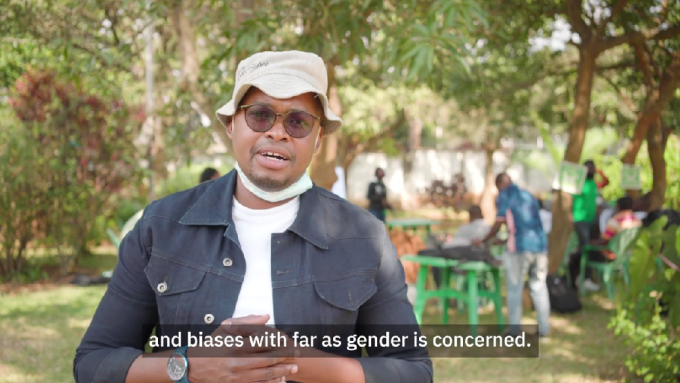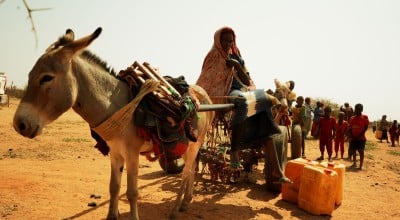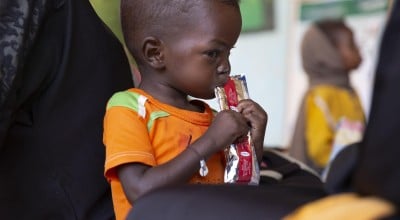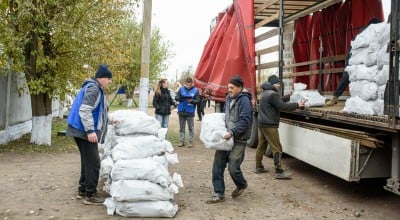
Read our 2024 annual report

Knowledge Hub
One in three women worldwide experience physical or sexual violence in their lifetime, and mostly by an intimate partner. This is already a shocking statistic.
However, when crises and emergencies strike, Gender Based Violence (GBV) increases due to stresses and strains for those affected, abuses of power and an underpinning of rigid gender norms and harmful masculinities.
All of these contributing factors are exacerbated during times of crisis, largely at the cost of women and girls.
This year, as we mark the 16 Days of Activism Against Gender Based Violence, the difference is that recently the same crisis has affected us all at the same time, creating not only the COVID-19 pandemic but also contributing to what has been coined the GBV ‘shadow pandemic’.
It has brought under the spotlight the stark pre-existing rates of GBV globally and the lack of services for those that need them.
It has driven home the worsened reality that COVID-19 restrictions brought for women who were trapped at home with their abusers while GBV services, where they existed, were reduced.
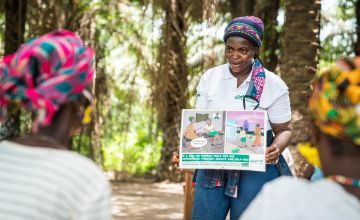
Violence takes many forms
Intimate partner violence (IPV) persists everywhere and at all layers of society.
The term GBV often brings to mind physical or sexual violence but it takes many forms, and also includes psychological and economic violence, child marriage, forced marriage, sexual exploitation and abuse, harmful traditional practices and harassment.
All of these increased during COVID-19.
Research in East Africa, West Africa and the Great Lakes region revealed increases in IPV by 73%, sexual violence by 51% and early and forced marriage by 32% of women since the onset of COVID-19.
Triggers for IPV included the stress of lockdown and its economic repercussions within households, as well as women asking their husbands to comply with COVID-19 prevention measures. Security personnel at checkpoints designed to restrict movement increased women’s risk of harassment and violence. The increased need for handwashing brought an increased need for water, and this created a greater risk of violence en route to, and at, water points.
Our qualitative research highlighted the role that social and gender norms play in worsening violent behaviour towards women, particularly by men.
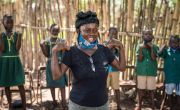
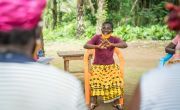
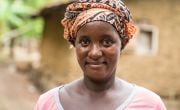
One woman in Bangladesh highlighted how, “the tension between husband and wife has increased more than before. Now, the husbands cannot pay for their families properly, cannot meet the needs of the family. With all these, strife is being created in families“.
Equally, men acknowledged being unable to fulfil the expected role of provider and the increased pressures that this has brought.
In Somalia, for example, one man acknowledged: “I am affected because I am jobless and can’t provide for my family and my wife, they are just staying in the house waiting for me to provide so there comes misunderstanding. The children don’t go to school and we fight in the house.”
This expectation that men have been conditioned to fulfil has been put under threat and for many, conflict and violence within the household is the way this frustration manifests.
Harmful and rigid gender roles
During COVID-19, women have been tasked, even more disproportionately than before, with domestic and caring tasks and accordingly, their levels of mental health and wellbeing have been consistently worse than men’s. It is even more evident that, during a crisis, rigid gender roles become even more harmful than usual.
We’ve been working on these issues for many years.
We facilitate dialogue to help men and women identify some of these rigid and negative gender norms and reflect on how they affect their homes and communities.
We aim to facilitate a process through which they can decide what needs to change in their own behaviour and in their relationships to improve the wellbeing of the whole family. Violence is a major topic within this process, including where it is learned, how it is perpetuated, its consequences and creating healthier, happier homes.
Have a look at our new, short video for more on the approach we use.
Reducing GBV means more education for girls, more income opportunities for women, more peaceful homes and more productive couples that can work together as a team.
Practical benefits for entire families
On my recent visit to DRC, one woman who has been through such a process of gender transformation told me that previously it was difficult for her to oppose her husband.
“He would say ‘you're a woman, you can't say anything’," she says. "When we are like this, we can't make money. Before we had lots of conflict in the household, and lots of problems. Now we plan together and he doesn’t use the money alone.”
So, not only does challenging harmful gender norms and violence reflect everyone’s human right to life and safety but it also has very tangible, practical benefits for entire families.
Our work continues in many countries throughout the restrictions brought about by COVID-19, at a time when it is needed more than ever.
Even in the slums of Dhaka, Bangladesh, where restrictions meant that the team could no longer access programme participants directly, we had already trained local ‘Change Makers’ from the community to be able to continue to intervene in cases of child marriage and IPV, and keep reinforcing messaging around violence and gender equality. In Syria, we continue to manage cases of GBV, despite the restrictions.
In Lebanon and Turkey, we have set up specific responses to the rising rates of GBV, such as setting up GBV telephone hotlines.
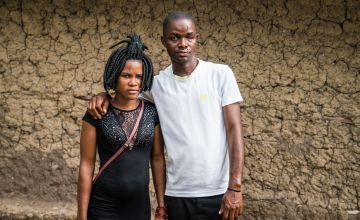
Preventative programming against GBV continues to generate promising results. These approaches bring changes in deep-rooted attitudes and behaviours, slowly but surely.
We will continue to find ways to spread the impact more and more widely so that even when future crises strike, there is a stronger foundation of positive gender norms in place, helping people to get through them without women and girls having to pay such a disproportionately high price.
To find out more about our work on gender equality, see the latest addition of Knowledge Matters below.
How you can help
Buy a gift
With an extensive range of alternative gifts, we have something to suit everybody.
Leave a gift in your will
Leave the world a better place with a life-changing legacy.
Become a corporate supporter
We partner with a range of organisations that share our passion and the results have been fantastic.
Volunteer with Concern
There are lots of opportunities for you to get involved with Concern as a volunteer.
Fundraise for Concern
From mountain trekking to marathon running, cake sales to table quizzes, there are lots of ways you can support our work.
Donate now
Give a once-off, or a monthly, donation today.


